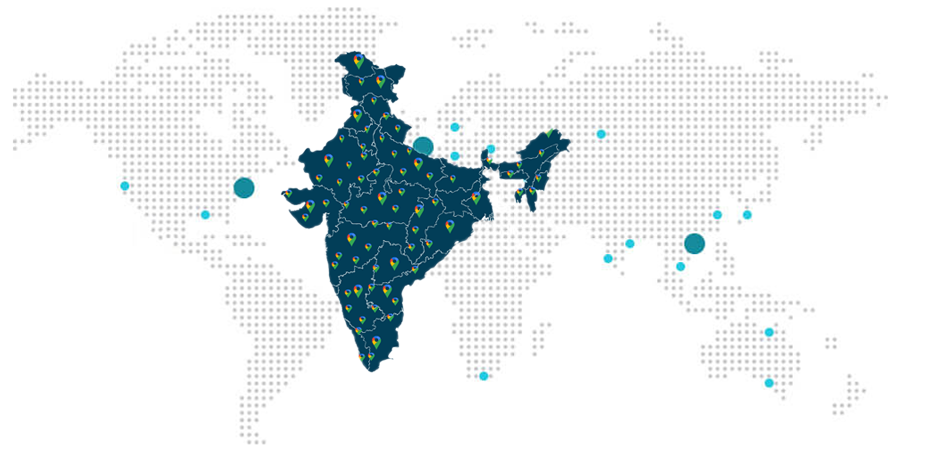E-Way Bill under GST: E-Way Bill GST Rules and Compliance
Categories
GST Services
What is an E-Way Bill under GST?
Goods and Services tax implies that all the transporters need to carry an E-Way bill, at the time of transporting goods from one destination to another destination. This is related to satisfying of certain conditions.
E-Way bill is an electronic way bill, needed for transporting goods from one place to another place. The bill is generated by the portal of E-Way bill. Any transportation of goods valuing for more than Rs 50,000 in a single invoice or in a single delivery challan can never be made by a person, who is registered in GSTIN without an E-Way bill.
An E-Way bill can also be generated or cancelled through the process of sending a SMS. E-Way bill also can be generated or cancelled via Android App or by integration of web sites, through the use of Application Programming Interface.
A unique E-Way bill number or an EBN is generated the moment an E-Way bill is generated. This EBN is allocated to and is available with the supplier, the recipient and the transporter.

E-Way bill GST Rules and Compliance
Way bills were required previously at the time of transporting goods from one place to another place, to facilitate the supply of goods. This procedure was adopted before the Goods and Service Tax came into existence. This Way bill, which was a physical document, could be obtained from the authorities of Value Added Tax, or VAT. This process of procuring a Way bill was very complicated, because of the compliance requirements around thE-Way bills. This created great hindrances in movement of goods from one place to another place, especially across the states, in India.
When should E-Way Bill be issued?
An E-Way bill should be generated at the time of inter state or intra state movement of goods. These goods are being moved for supply, or for other reasons, other than supply, a unregistered person making an inward supply etc.
An E-Way bill is also required at the time of transferring goods from one vehicle to another vehicle. If there is multiple consignment on a single vehicle, a consolidated E-Way bill will also serve the purpose
This E-Way bill can easily be generated through E-Way bill manager, which can be integrated with the user’s Enterprise Resource Planning or ERP.
What is supply in relation to E-Way Bill?
Supply related to E-Way bill can be any thing from the under mentioned:
Who is authorised to generate E-Way Bill?
- The registered person can generate an E-Way bill, if the value of goods in transition is more than Rs 50,000/-. The registered person or the transporter must generate an E-Way Bill, in this condition. The bill can also be generated if the goods in transition is valuing less than Rs 50,000/-.
- This E-Way bill can also be generated by an un registered person or a transporter. If the supplies of goods are made by an un authorised person to a registered person, the registered person has to bear all the responsibilities and do all the compliances, as if the registered person is the actual supplier of goods.
Validity of E-Way Bill
An E-Way bill is valid for different time periods. This validity time is decided on the distance travelled by the goods, while being transported from one place to another. Validity period of an E-Way bill is always calculated from the date and time of generating the E Bill, by the valid authority
If the goods have travelled a distance of less than 100 kms, the validity of the E-Way bill will be just one day. An extra day for validity of the E-Way bill will be granted for every 100 kms the goods in transit travels, while being transported to its destination.
What happens if the E-Way Bill expires?
The movement and the transportation of the concerned goods needs to be immediately stopped, at the moment the E-Way bill expires. An extension of the E-Way bill can be granted in case of exceptional situations, by the commissioner of the state.
List of items exempt from E-Way Bill
Some items have been exempted from the compliance binding of GST rules. These are mainly perishable items, such as, vegetables, meat, bread, curd, books and jewellery.
There are some other items, other than perishable items, which have been exempted from the GST compliance rules of having an E-Way bill. These items are contraceptives, Judicial or Non-judicial stamp papers, Newspapers, Khadi, Raw Silk, Indian National Flag, hairs from human heads, kaajal, Pots made of earth ware, cheques, municipal waste, Puja samagri, LPG or Liquid Petroleum Gas, Kerosene oil, Heating aids and national currency notes or coins.
E-Way bills need not to be generated if the transported goods are moved on a non-motorised vehicle, or by some other mode of conveyance. E-Way bill need not be generated if the goods are being transported from a sea port, from an airport, from an air cargo complex and from a land custom station, to a depot of inland container or to an inland container freight station, for clearance by the custom authority.
Can I modify or cancel the E-Way Bill?
Once an E-Way bill is generated, it can neither be modified or cancelled by any source, or for any reason. The E-Way bill can only be cancelled, if the goods in question, need not be transported, or the mode of transportation is changed. This generated E-Way bill must be cancelled within 24 hours of its generation.
In case of any rejection of the consignment by the recipient, the old bill may be cancelled and a new E-Way bill is to be generated for Sales return.
What Clients Say

Prakash Verma


Praveen Chauhan


Pradeep Kochhar

Blogs
In today's dynamic business landscape, navigating through various regulatory requirements and financial obligations can be... Read More
FinacBooks is a reliable platform that helps business owners in getting verified leads. It offers various services and solutions that can... Read More
Starting a new business in India requires several legal procedures, paperwork, and timely compliance with regulatory authorities. Company... Read More








